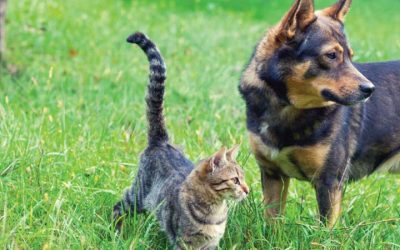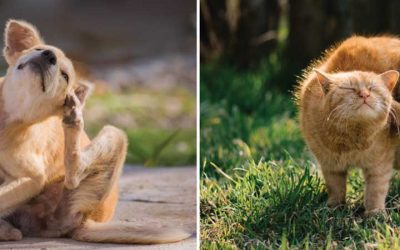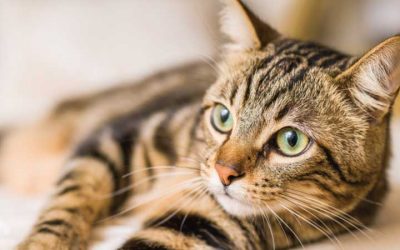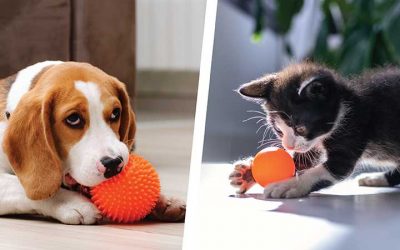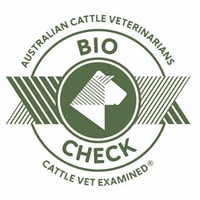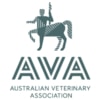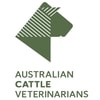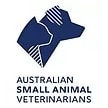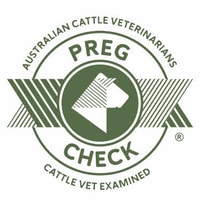
The silly season is an exciting time of year, with Christmas and New Year’s Eve celebrations giving us plenty of reasons to let loose and celebrate. With an increase of visitors, noises, tasty treats, shiny new toys, and interesting smells, this time of year can be overwhelming for our pets.
Here are some recommendations to make sure your furry friends are safe and happy during this festive time.
- Make sure your pet has access to a quiet, calm, and secluded spot to hide away if needed
- Exercise your pets before any guests arrive or before any particularly noisy events (i.e., fireworks displays) if you can – a pet with pent up energy can easily become anxious
- Keep Christmas decorations and wrapping items (paper, tape, ribbon, discarded plastic, etc.) out of your pet’s reach. If ingested, these items can cause serious health problems, including intestinal blockages that may require surgical removal
- Many plants and flowers used for Christmas decorations are toxic to pets – be sure to keep these out of reach
- Many foods we see at celebrations are toxic to pets and can even be fatal. Make sure your pet does not have access to:
- Chocolate
- Christmas pudding
- Salty foods (chips, pretzels, crackers, etc.)
- Lollies & artificial sweeteners
- Grapes, sultanas, raisins, and currants
- Alcohol
- Cherry pits (and other stone fruit pits)
- Macadamias
- Corn cobs
- Avocado
- Cooked bones
Fireworks can be terrifying for pets. Here is a list of tips for preparing your pet for fireworks displays:
- Keep pets indoors when possible. The walls and roof will help to soften the noise and will also contain them safely.
- Prepare your pet for loud noises during the day by putting on the TV or radio. Turn the volume up progressively throughout the day, so when the fireworks display commences, the existing noise will create a distraction
- Avoid fussing over your pet. Carry on as normal, as this will reassure your pet nothing is wrong. You can use treats and games to distract them and encourage calm behaviour.
- Ensure your pet’s microchip and identification tag details are up to date. Unfortunately, many pets escape during fireworks displays and can be found very far from home.
- Pheromone diffusers could help to calm your pet. Talk to our team about Feliway for cats or Adaptil for dogs.
- Some pet owners choose to use medications to assist in keeping particularly anxious pets calm. This is not something our team can organise for you without prior consultation, so please book in advance.
Our appointments during the festive season fill up very quickly, so be sure to organise an appointment as soon as possible.
If you suspect your pet has ingested something they shouldn’t, has injured themselves, or you would like more advice on keeping them safe over the Christmas and New Year’s period, give our friendly team a call on 07 4693 2233 or book online to organise an appointment.
RELATED ARTICLES
Parasites
As the weather warms up, we start to see more parasite problems for all sorts of pets.Here are some of the more common parasites we come across, as well as some information on the problems they cause and how to get rid of them. Fleas Fleas are relatively easy to spot,...
Itchy skin and ear infections
Around springtime, we often see an increase in itchy skin (dermatitis) and ear infections in dogs and cats. How to spot itchy skin You should know almost right away if your cat or dog has dermatitis. Here are a few of the common signs: Constant scratching, licking, or...
Feline AIDS
The Feline Immunodeficiency Virus (FIV) causes feline AIDS and is relatively common in Australia and New Zealand, with up to 25% of domestic cats testing positive for the virus. This disease is incurable. It compromises the efficiency of a cat’s immune system by...
Keeping your pets active in winter
It can be hard to get out of your warm bed or off the cosy couch on a winter’s morning for exercise, and your pet can feel the same way too! It's important to continue exercising your pet in winter, as well as keeping them mentally stimulated. Being cooped up inside...
RELATED
ARTICLES
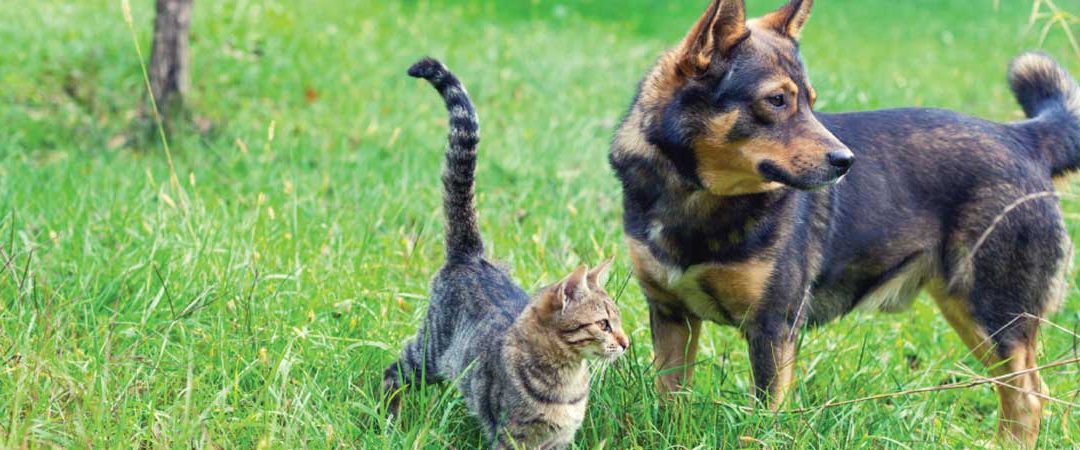
Parasites
As the weather warms up, we start to see more parasite problems for all sorts of pets.Here are some of the more common parasites we come across, as well as some information on the problems they cause and how to get rid of them. Fleas Fleas are relatively easy to spot,...
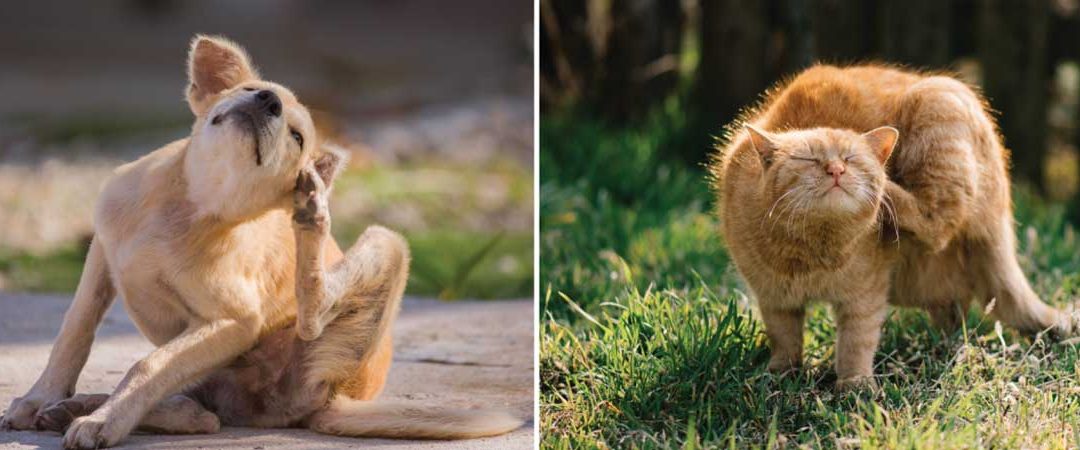
Itchy skin and ear infections
Around springtime, we often see an increase in itchy skin (dermatitis) and ear infections in dogs and cats. How to spot itchy skin You should know almost right away if your cat or dog has dermatitis. Here are a few of the common signs: Constant scratching, licking, or...
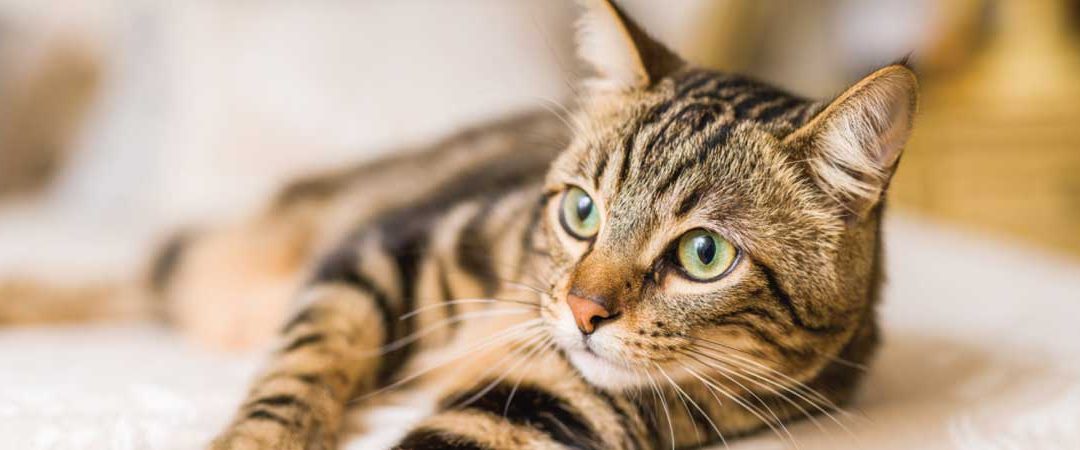
Feline AIDS
The Feline Immunodeficiency Virus (FIV) causes feline AIDS and is relatively common in Australia and New Zealand, with up to 25% of domestic cats testing positive for the virus. This disease is incurable. It compromises the efficiency of a cat’s immune system by...
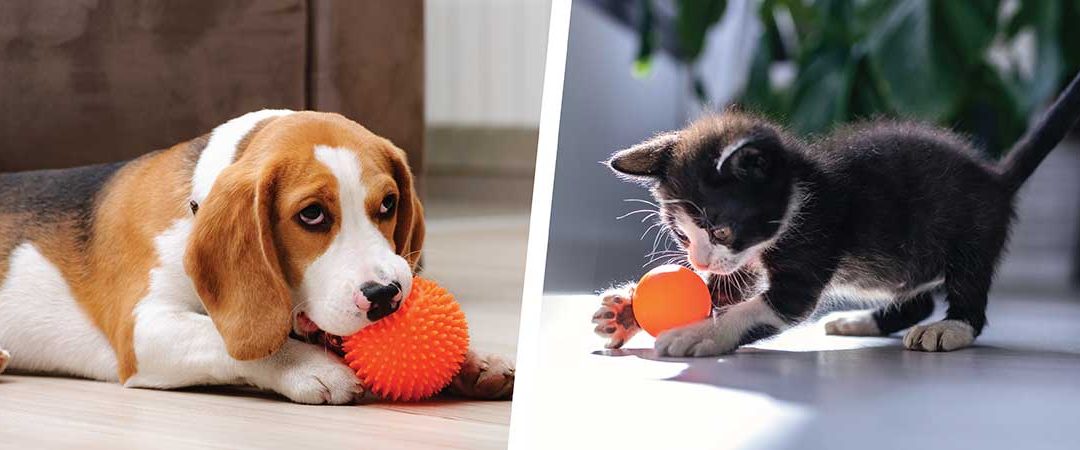
Keeping your pets active in winter
It can be hard to get out of your warm bed or off the cosy couch on a winter’s morning for exercise, and your pet can feel the same way too! It's important to continue exercising your pet in winter, as well as keeping them mentally stimulated. Being cooped up inside...
Call Us Today To Discuss Your Animal Needs
Business Hours Phone: 07 4693 2233




